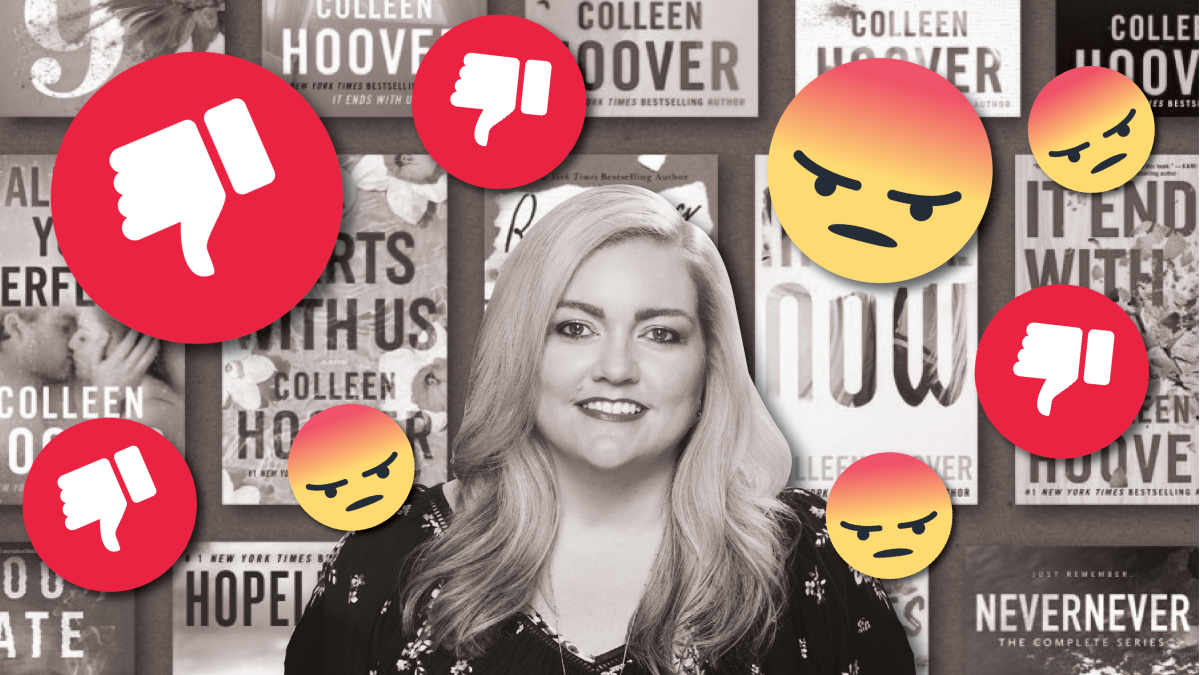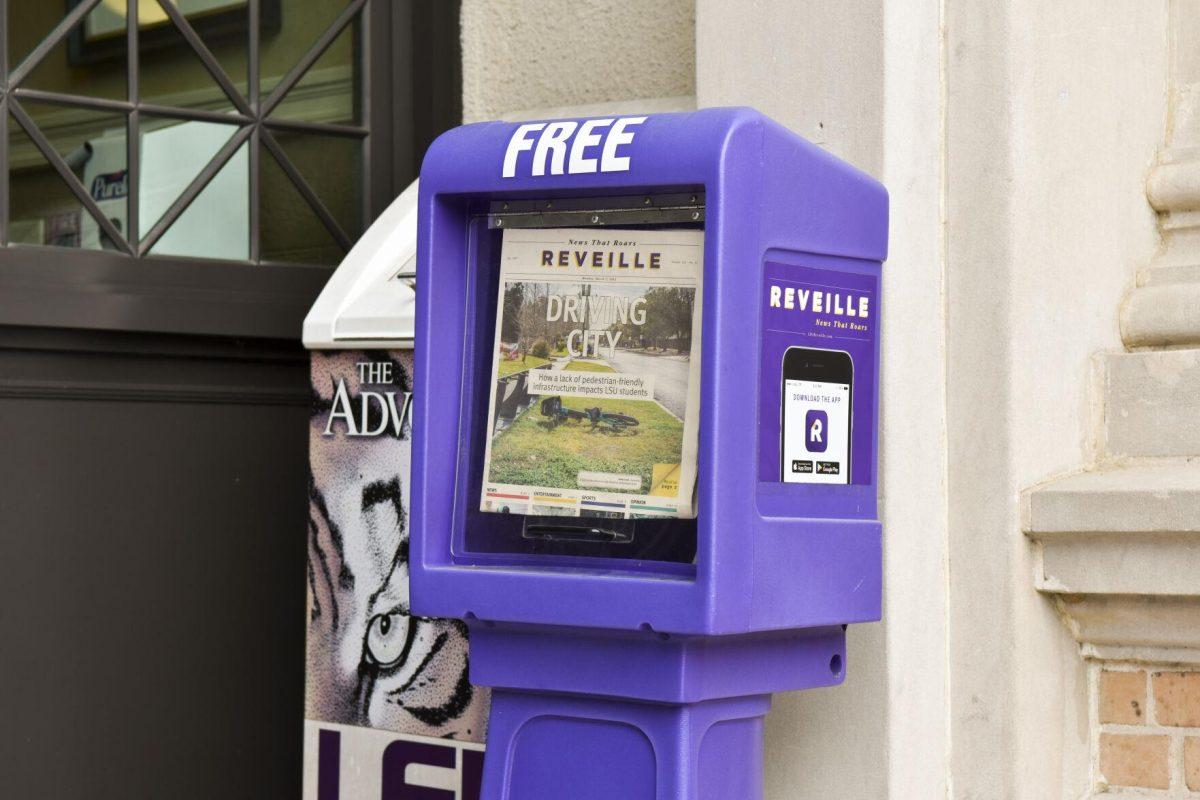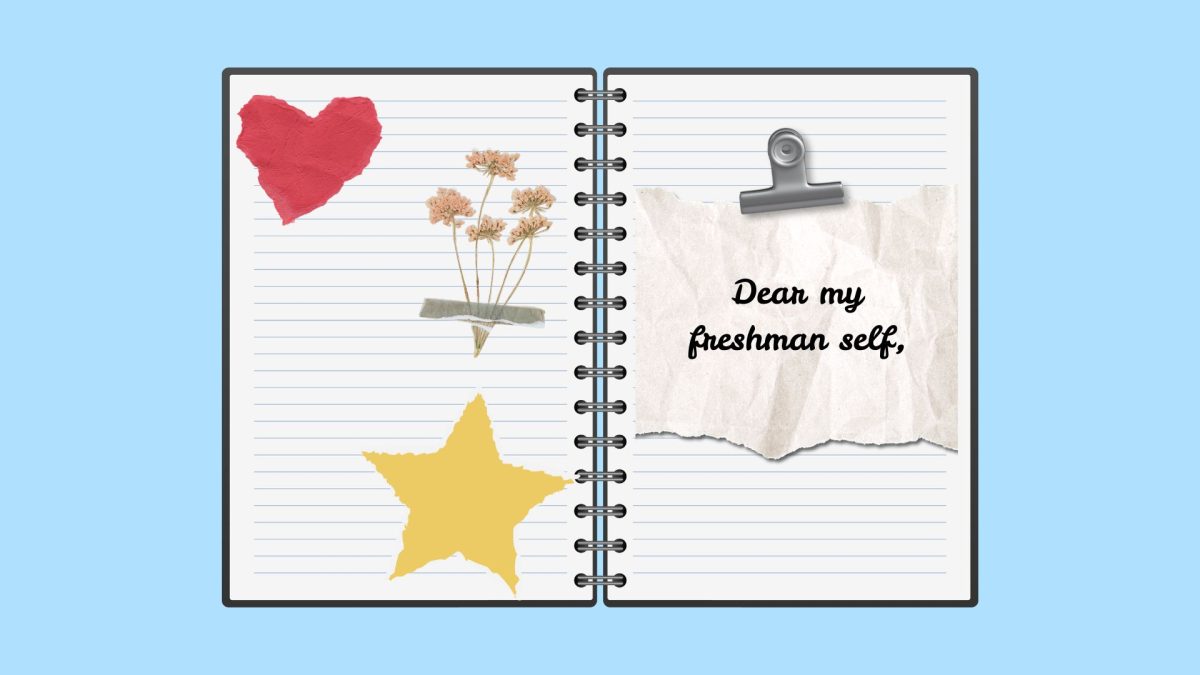Colleen Hoover is one of the most beloved authors of our time. Her books adorn the shelves of innumerable bookshops. Hoover’s “It Ends with Us” has sold 20 million copies. So, obviously, she’s become a bit of a literary titan.
Part of Hoover’s critical success comes from BookTok, which is a community on TikTok that shares book recommendations, edits and, in general, anything relating to literature.
Hoover blew up on BookTok, and countless readers fangirled about her steamy romances, relatable characters and willingness to show abuse in her romance novels.
So, I did what every other impressionable, bookworm teen did. I read her books.
I hated them.
A few general grievances to start. Hoover sells fanfiction-level literature. There’s nothing wrong with easy reading; however, if I’m paying, with my own money, for something on par or worse than what I’d get on Wattpad or Archive of Our Own, there might be a problem.
Another issue I have with Hoover’s books is rather trivial, but why are the covers so bad? They’re uninspired words on a piece of paper and an absolute waste of a graphic design opportunity. Hoover makes enough money to hire a cover artist or at least fork up the $5.99 for Picsart Pro.
This is not to mention how over 20 of Hoover’s books feature toxic men or abusive relationships, which is not directly an issue. Authors should be allowed to depict relationships that suit the tone of their novels. However, Hoover’s novels are marketed to young adults, and her books usually lack appropriate content warnings for the delicate subject matter discussed.
To add to the growing list of Hoover’s issues, her fanbase can rival the ferocity of K-pop fans or dare I say, Swifties. Her ferocious and capricious fans, aptly dubbed CoHorts–which is kind of cute and silly, I guess–have been known to harass BookTok content creators who share the same opinions I do.
While that behavior may be becoming more and more commonplace nowadays, that doesn’t mean it should be. And Hoover hasn’t once called off her attack dogs.
In the spirit of fairness, I re-read two of Hoover’s essential novels (yes, at one point I did try to like her) to give you a fresh analysis of them from a Hoover scholar, and because I like reviewing things.
“It Ends with Us”
I started my reading with Hoover’s most popular piece, “It Ends with Us.” In this novel, we follow Lily Bloom (a little on the nose). The story is best summarized as the following: Lily Bloom comes from an abusive household. As she grows, she must face the challenge of navigating her life while avoiding the repetition of violent patterns from her childhood. The novel delves into the intricate interconnection of love and abuse by alternating between Lily’s current circumstances and her diary entries from her teenage years.
She falls in love with Ryle Kincaid, but he’s revealed to not be a good man. There’s also a love triangle, a baby and some questionable friends. That’s the most spoiler-free I can get.
To start with my smaller issues, I just flat-out don’t like Hoover’s voice in this book. It feels very tween, and the subject matter is anything but. That doesn’t mean I don’t think sensitive topics should be available for younger audiences; however, it does mean I think a more delicate touch is required.
Additionally, the smut is… not good. At least not to me. It reads like a female Scientologist who just left the church and then read “Twilight” and “Fifty Shades of Grey” decided to take the edgy aesthetics out of both, slap on a healthy smattering of Wattpad writing style and voila: “It Ends with Us” smut. All in all, it’s funnier than it is sexy.
I also don’t think the journal entry time skips are as smooth as they could be. It’s especially saddening because this trope is one of my favorite mediums for telling a story a-la “The Color Purple.” Her fumbling of the journal entries also ties into my general pacing issue with this book. It’s like something is always happening, borderline CW show levels of fast pace, a never-ending rollercoaster.
My biggest issue with this book, and most books Hoover writes, is not that people won’t be able to separate the fiction from reality (i.e., they don’t actually want a man like Ryle to abuse them or for them to fix). The issue I have is that books like this and the public perception around them glorify or accept abuse as just a part of love.
And you may argue that people’s perception isn’t Hover’s fault. And, to an extent, you’re right. But Hoover isn’t dumb.
These books only sell because young romance fans share them and say, “Oh em gee! This book is so good and emotional and romantic and like… sexy!” And Hoover wouldn’t dare hurt her best form of marketing, so she lets people romanticize her toxic portrayals for a bigger buck.
It’s a four out of 10 book.
It Starts with Us
Next up to bat is the “It Ends with Us” sequel. “It Starts with Us” is a continuation of Lily Bloom’s journey. I think this is my favorite novel from Hoover, but I still don’t like it. To summarize the story without vast spoilers, it’s still the story of Lily Bloom, a now single mother attempting to rekindle her teenage love with Atlas Corrigan, a key player in the last book.
This book is a bit happier and a bit calmer; however, as I said, I still don’t like it. Here are my relatively minor gripes.
First, I’m still not a fan of the writing style. It just feels too simplistic for the seemingly profound themes Hoover is trying to convey.
The word choice is bland, which is also the best descriptor of this book. It’s just lackluster. In “It Ends with Us,” the plot is intense (too intense at times). In this book, it all feels uninteresting. Though, that might be because I didn’t love the first book, so I never really got invested in the characters.
Another issue, Lily and Atlas get married and, for some reason, Atlas mentions divorce in his vows. It’s wild. I laughed out loud and then put myself in Lily’s shoes and then promptly felt nauseous. And people excuse it as him just being a realist. No. None of that realist, hyper-masculine bullcrap in my romance book. Divorce talk isn’t befitting a wedding, no exceptions.
Atlas also writes Lily letters that should’ve been so cute and sweet but just began to feel tedious, adding to some other miscellaneous pacing issues. Pacing is hard.
One thing I especially hated about this book is that Ryle is still involved in Lily’s life. I know that may just be due to personal taste, but if “It Ends with Us” did spark one emotion in me, it was rage toward Ryle.
I don’t think he deserved to get let off the hook because of some anger management classes. He should’ve gotten the death penalty—gavel bang—my judgment is passed.
That being said, the Ryle and Atlas comparisons are exhausting. Readers know Atlas is a good person, and Ryle isn’t. But just in case you didn’t, be ready for 37 chapters of comparison. It got old and stale, and I wish instead of their actions being directly compared, readers were just shown his actions and encouraged to make the connection on their own. In general, Hoover’s writing suffers from the “tell, tell, tell” style when she should be “show, show, show.”
This book was, in my opinion, not planned. Hoover wrote this sequel because people wanted to know how Lily’s story ended. I appreciate the commitment to her fans and her bank account, but this book is a 50-page manuscript drawn out to over 300 pages.
It’s an improvement, a five out of 10.
In general, Hoover has the aura of a high school English teacher and the writing style of a teenager who just learned about sex and loves “Gossip Girl.” She tackles big, real issues with all the gall of a child speaking about politics at the dinner table. She writes books that have helped glorify and normalize real, toxic issues.
Hopefully, I’ll never be opening another one of her novels.
Garrett McEntee is an 18-year-old English freshman from Benton.








